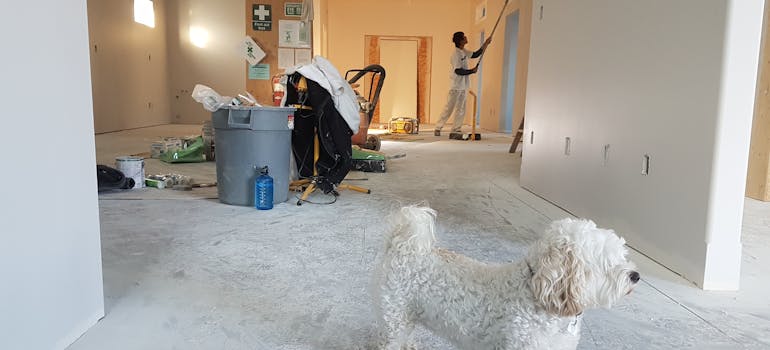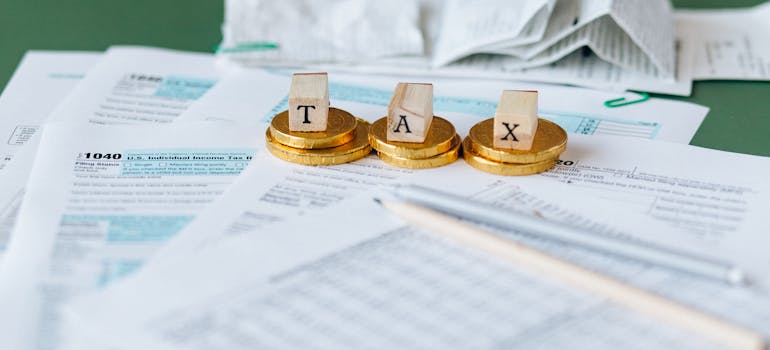Purchasing a property where you’ll live is an exciting milestone, but it also comes with new financial responsibilities. However, for a happy and stress-free future, it’s of utmost importance to get your finances in order after buying a home. The following practical tips can help you manage your money and maintain financial stability in the long run.
1. Create a new budget
Creating a new budget is essential after buying a home to ensure you can manage your finances effectively. Here’s how to start:
- List all income sources. Include salaries, freelance work, rental income, and any other sources.
- Track expenses. Record everything, from mortgage payments to utilities, groceries, and discretionary spending.
- Categorize spending. Divide expenses into fixed costs (mortgage, insurance, utilities) and variable costs (entertainment, dining out, clothing).
- Set spending limits. Determine how much you can spend in each category without exceeding your income.
- Prioritize essential expenses. Make sure to cover essential expenses first before allocating money to non-essential items.
- Include savings goals. Allocate a portion of your income to savings, whether for an emergency fund, retirement, or future home improvements.
- Adjust as needed. Review and adjust your budget monthly to reflect changes in your income or expenses.
- Monitor progress. Use budgeting apps or spreadsheets to track your spending and ensure you stay within your limits.
Following these steps will give you a clear view of your finances and can make informed decisions to maintain financial stability.
2. Build an emergency fund
You must build an emergency fund if you want to be in charge of your finances. Life can be unpredictable, and having a financial safety net can help you handle unexpected expenses like repairs or medical bills without resorting to high-interest credit cards. According to the furniture movers Washington DC residents trust, saving enough to cover three to six months of living expenses is wise. Therefore, start by setting aside a small amount from each paycheck and gradually increase it over time. Automating your savings can make this process easier. Even small contributions can grow significantly with consistency, providing you with the security you need in times of financial uncertainty.

3. Review and adjust insurance policies
After buying a home, it’s important to review your insurance policies to ensure you have adequate coverage. Homeowners insurance protects you from potential risks like natural disasters, theft, and accidents. In case you have been using the services of Washington DC hourly movers, check if your policy covers any potential damages during the move. Additionally, consider increasing your coverage if the value of your belongings has gone up. You might also want to look into bundling your homeowner’s insurance with other policies, like auto insurance, to save money. In essence, regularly reviewing and adjusting your insurance ensures you’re always protected and not overpaying for unnecessary coverage.
4. To get your finances in order after buying a home, prioritize debt repayment
Managing debt is paramount when you have a new mortgage. Consider these steps in order to effectively prioritize debt repayment:
- List your debts. Include credit cards, student loans, car loans, and personal loans.
- Identify interest rates. Focus on paying off high-interest debt first, because it costs you the most over time.
- Create a repayment plan. Use strategies like the debt snowball method (paying off the smallest debt first) or the debt avalanche method (paying off the highest interest rate debt first).
- Make extra payments. Whenever possible, pay more than the minimum on high-interest debt to reduce the principal faster.
- Automate payments. Set up automatic payments so you would avoid late fees and ensure you stay on track with your repayment plan.
- Consider refinancing. Look into refinancing options for high-interest loans in order to lower your rates and monthly payments.
- Cut unnecessary expenses. Reduce discretionary spending so you could free up more money for debt repayment.
- Track your progress. Regularly monitor your debt levels and celebrate small victories because it’s a great way to stay motivated.
Prioritizing debt repayment helps reduce financial stress and improves your overall financial health, allowing you to enjoy your new home without the burden of excessive debt.
5. Plan for home maintenance and repairs
Every homeowner needs to plan for home maintenance and repairs. Regular upkeep helps prevent costly issues in the future. Therefore, you should set aside a portion of your budget specifically for maintenance tasks like HVAC servicing, roof inspections, and plumbing checks. Experts suggest saving about 1-3% of your home’s value each year for these expenses. A2B Moving and Storage advises homeowners to keep an organized list of necessary maintenance and repairs to ensure nothing is overlooked. This proactive approach not only protects your investment but also keeps your home safe and comfortable. Being prepared financially means you’re ready to handle any repairs that come your way without added stress.

6. Reevaluate long-term financial goals
If you want to get your finances in order after buying a home, it’s a good idea to reevaluate your long-term financial goals. Homeownership can impact your plans for retirement, education savings, and other investments. Therefore, you should review your financial goals and adjust your strategies as needed. Consider increasing contributions to your retirement accounts or setting up a college fund for your children. Local movers DC offers often see homeowners reassessing their goals to ensure they can maintain their new lifestyle while still planning for the future. Additionally, prioritize paying off high-interest debt to free up more money for savings and investments. When you regularly review your financial goals, you can stay on track and make informed decisions that align with your new responsibilities as a homeowner.
7. Explore tax benefits and deductions
Homeownership comes with potential tax benefits that can help you save money. Here are some key deductions and credits to consider:
- Mortgage interest deduction. Deduct the interest paid on your mortgage, which can be substantial, especially in the loan’s early years.
- Property tax deduction. Deduct state and local property taxes, which can add up to significant savings.
- Home office deduction. If you work from home, you can deduct a portion of your home expenses, such as utilities and home insurance, proportional to the space used for your business.
- Energy efficiency credits. Receive credits for making energy-efficient improvements to your home, such as installing solar panels, energy-efficient windows, or insulation.
- Private Mortgage Insurance (PMI) Deduction. If you are paying PMI, you may be able to deduct these payments if your mortgage qualifies.
- Capital gains exclusion. If you sell your primary residence, you can exclude up to $250,000 ($500,000 for married couples) of the capital gains from your taxable income.
- Points deduction: If you paid points to lower your mortgage interest rate, you might be able to deduct those points on your taxes.
- Medical home improvements: Certain home improvements made for medical reasons may be deductible if they exceed a certain percentage of your adjusted gross income.
Consult a tax professional to ensure you’re maximizing your tax benefits and deductions, helping you make the most of your new home financially.

Securing your financial future
In essence, choosing to get your finances in order after buying a home is essential for long-term stability. By creating a budget, building an emergency fund, and planning for future expenses, you’ll be better prepared to enjoy your new home without financial stress. Finally, taking these steps will help ensure a secure and prosperous future in your new home.


